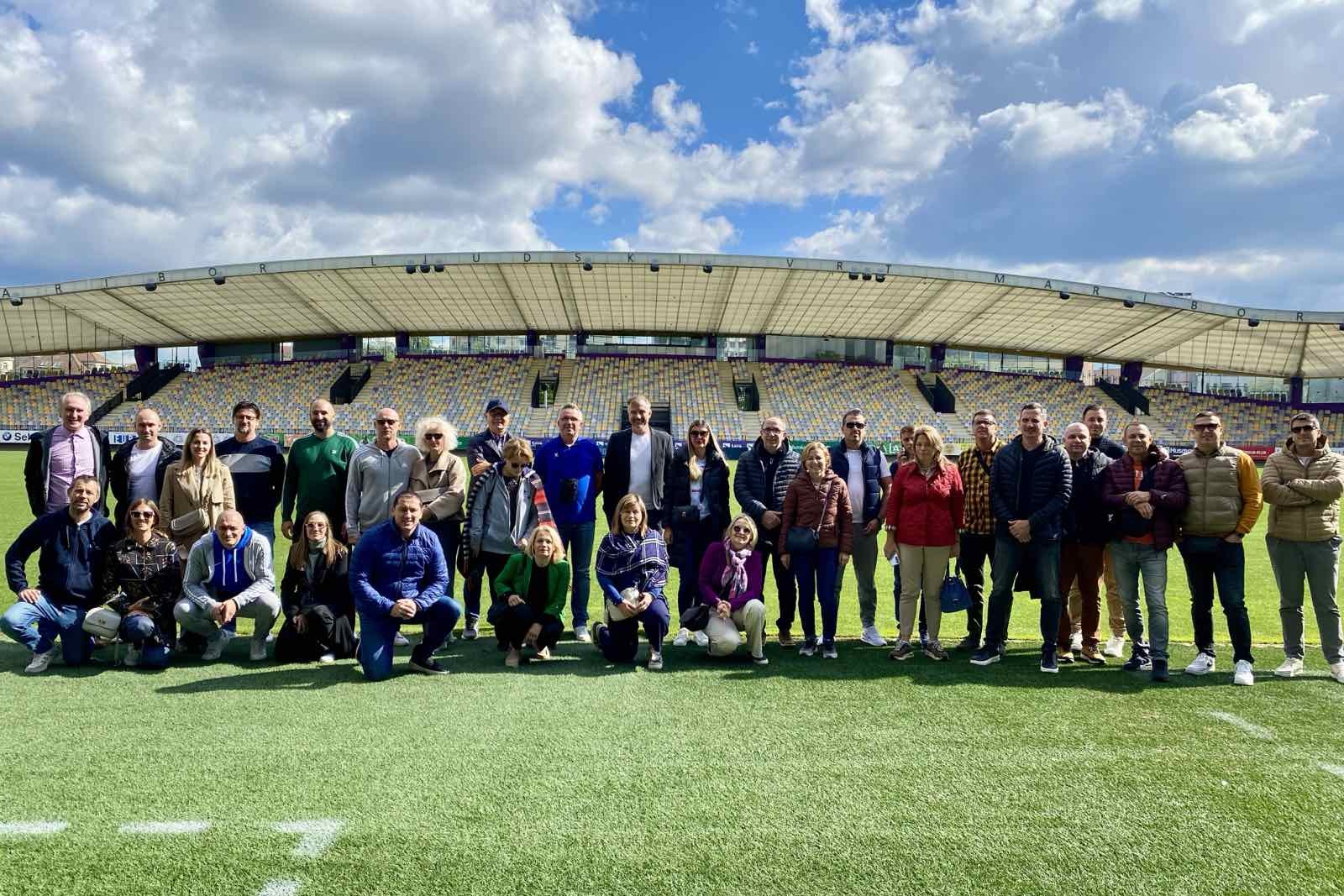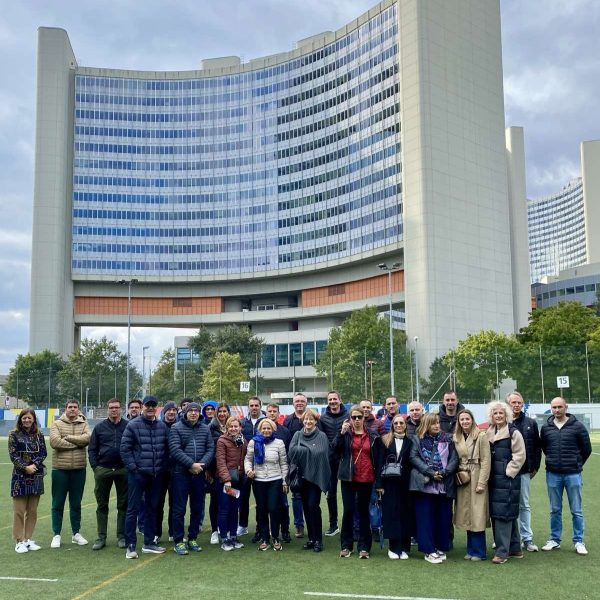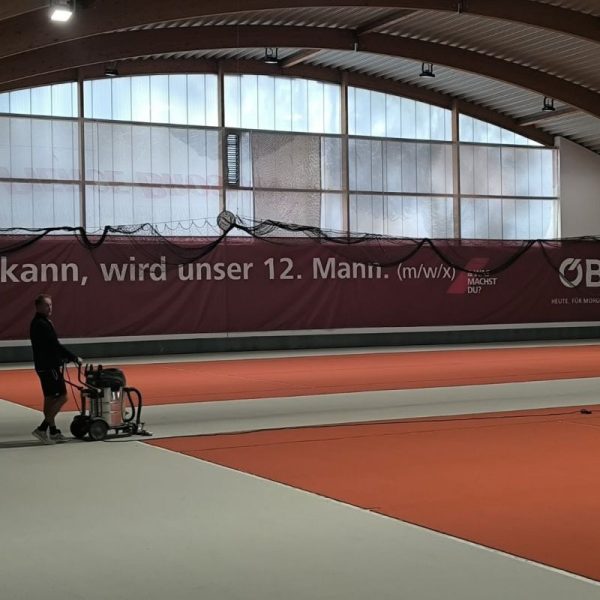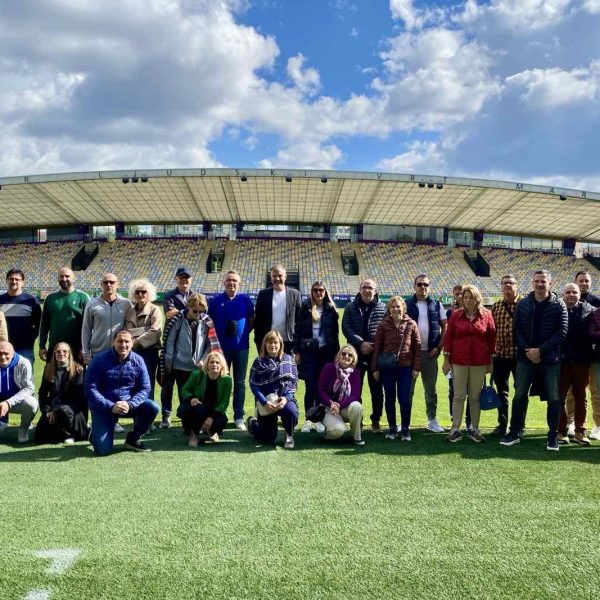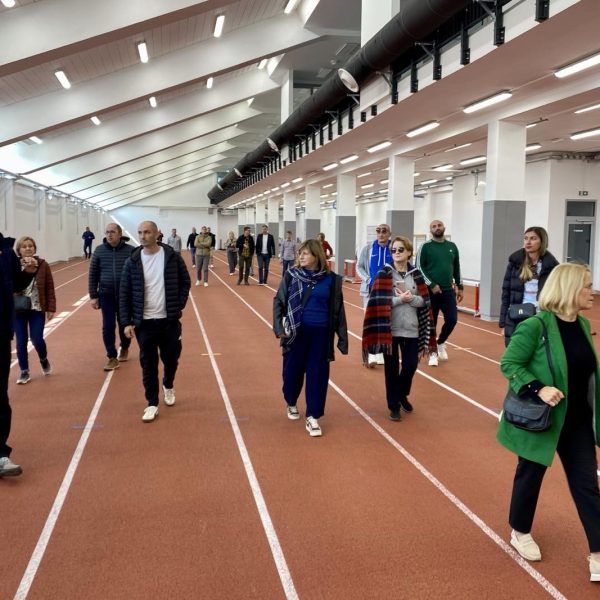As part of the Sport Facilities Green Energy – SINERGY project, co-funded by the European Union through the Interreg VI-A IPA Croatia – Bosnia and Herzegovina – Montenegro 2021–2027 programme, the City of Tuzla as the lead partner, together with the Center for Ecology and Energy from Tuzla and partners from Vukovar and Herceg Novi, carried out a four-day study visit to Slovenia and Austria.
First Stop: Maribor
The study visit began in Maribor, where participants had the opportunity to visit the company JHMB, which integrates public service providers with the goal of optimizing operations and increasing energy efficiency. The participants toured several sports facilities managed by the JHMB group, including Poljane Stadium, Ivo Daneu and Goran Dragič Basketball Courts, the Ice Hall, Kamnica Hippodrome, Tabor Sports Hall, and Narodni Vrt Stadium.
During the visit, experiences were exchanged on facility management, the use of renewable energy sources, and maintaining sports infrastructure in line with ecological standards. The goal was to transfer the acquired knowledge to local partner communities through the development of concrete measures aimed at improving energy efficiency.
Second Phase: Vienna
After Slovenia, the delegation continued to Austria, where they visited the renowned Donaucity Sports Center in Vienna. Established in 1959, this complex is located on one of Vienna’s most valuable sites and offers extensive infrastructure: football, basketball, tennis, and volleyball courts; rooms for seminars and workshops; a restaurant and festival tent; and a composting area serving as an example of sustainable waste management.
A special focus during the visit was placed on practices of self-sustaining sports field maintenance and promoting a circular approach through internal processing of biological waste. The Donaucity Center was highlighted as an example of successfully integrating sports, ecology, and urban development.
Shared Mission
The study visit gathered a total of 22 representatives from sports centers and municipal administrations from partner cities — Tuzla, Vukovar, and Herceg Novi — as well as 10 members of the project team. The focus of activities was on the exchange of best practices, learning about the implementation of renewable energy sources, and developing sustainable models for managing sports facilities.
The knowledge gained will enable participants to implement new measures in their local communities, with the aim of improving energy efficiency and reducing the environmental impact of sports facilities.
 Jems
Jems